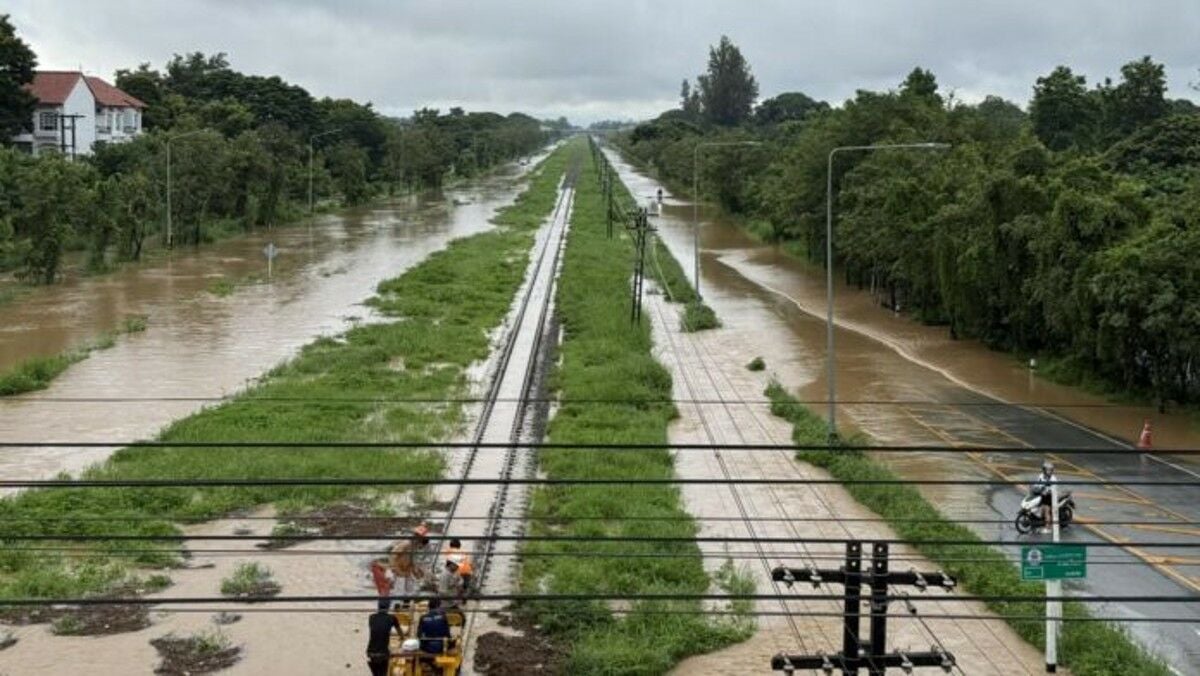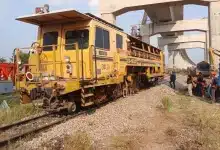Thailand trains diverted due to severe flooding in northern region

The Northern train route in Thailand is undergoing temporary changes due to severe flooding in the region.
Deputy Prime Minister and Minister of Transport, Suriya Juangroongruangkit, announced yesterday, September 26, that the State Railway of Thailand (SRT) has adjusted the starting and ending stations from Chiang Mai to Lampang until the situation improves.
Heavy rain and rising water levels in the north have raised significant concerns about transportation safety. The SRT has collaborated with bus services to facilitate passenger transport from Lampang to Chiang Mai’s Arcade Bus Station, ensuring safe and continuous travel. The agency is also closely monitoring the flooding to prevent further disruptions.
SRT Governor Veeris Ammarapala reported that sections of the railway near Chiang Mai have been inundated, necessitating route adjustments. Water levels along the tracks between Saraphi and Chiang Mai stations have risen to 5 centimetres above the tracks, prompting the temporary rerouting of 12 trains, including both express and local services, to terminate in Lampang.
“Affected passengers are being transferred to nearby stations for further travel assistance.”
Veeris emphasised that train routes will resume once the water recedes. The SRT is committed to ongoing monitoring and repairs of the damaged tracks to restore normal operations as soon as possible, reported Pattaya News.
“We are doing everything we can to monitor the situation and ensure the safety of our passengers.”
In related news, travellers are one step closer to an epic train journey from Bangkok to Beijing as a new railway bridge over the Mekong River has opened, linking Thailand and Laos by rail for the first time.
This milestone, completed last month, leaves just a few dozen miles of a trackless gap before the route can finally reach China.
In other news, Thailand will launch a new train service linking Bang Sue in Bangkok to Penang, Malaysia, within the next two to three months. The initial phase will be a six-month trial period, marking a significant step in cross-border transportation.
Latest Thailand News
Follow The Thaiger on Google News:


























